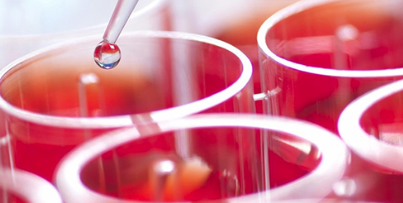Shares of Alva-based Omega Diagnostics Group, involved in developing new tests with partners for COVID-19, rose another 13% on Tuesday after the UK Government announced a first order for one million “COVID-19 lateral flow antibody tests.”
Omega Diagnostics’ shares have soared about 800% over the past 12 months to give the firm a current stock market value of about £190 million.
“Omega … notes the press release issued today by the UK Rapid Test Consortium (UK-RTC), of which Omega is a partner, on the UK Government’s first order for one million COVID-19 lateral flow antibody tests (the AbC-19 Rapid test),” said the Alva company.
“This first order is part of the UK Government’s plans to roll-out COVID-19 surveillance studies to help build a picture of how the virus has spread across the country.
“The AbC-19 Rapid test uses a small drop of blood from a finger-prick, and shows results in 20 minutes, without the need for a patient sample to be sent to a laboratory.
“The test is currently CE-Marked for professional use and can be administered by healthcare professionals, such as doctors, nurses, pharmacists and healthcare workers, at the point-of-care.
“The UK-RTC are seeking approval from the MHRA for self-test use.
“The UK-RTC members are in the final stages of formalising an agreement for the supply of goods from members to Abingdon Health, following the Memorandum of Understanding that was signed in April 2020.
“Omega expects to manufacture approximately 175,000 of these first 1 million tests but over the term of this supply agreement, Omega will manufacture not less than 25% of the demand from total orders placed, either from the UK Government or, where allowed, third party customers …”
Omega CEO Colin King said: “I am delighted that the UK-RTC has now received its first contract from the UK Government for our COVID-19 lateral flow antibody test.
“We believe that the AbC-19™ Rapid test has the immediate opportunity to allow the UK to build a swift and clear picture of how the virus has spread throughout the population.
“It also has the potential to be deployed in conjunction with vaccine candidates to help assess initial immune responses.”
